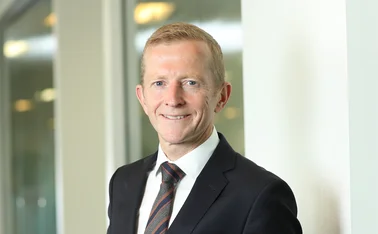
Post Europe: Joining up the approach to weather in the Balkans

Weather related catastrophes are common in the Balkans but there is a perception there that the government will always be on hand to help. However, as Sam Barrett explains the only way forward is to create and develop a market to enable the transfer of risk for these natural disasters.
Flash floods last December hit the Balkan Peninsula hard. With heavy rain pushing the River Drina to its highest level in 100 years, more than 40 000 people were evacuated from their damaged or destroyed homes in Bosnia and Herzegovina and in neighbouring Montenegro. And, although they may have been severe, these floods were not the only ones to affect the region in recent history.
In 2005 and 2006, Serbia, Romania and Bulgaria suffered severe flooding as melting snow and heavy rain flowed into the Danube. Slovenia also suffered one of its worst floods last September, causing around €15m damage. "In recent years the geographical location of the Balkans has meant a growing risk of natural disasters with extreme weather events becoming more frequent and more intense," says Urša Manček, deputy board member of Slovenia insurers Zavarovalnica Triglav.
Prone region
As well as floods, the region is also prone to other natural disasters including earthquake, drought, hailstorms and violent storms. And, as a result of climate change, these events are set to increase.
But, while the risk of natural disasters is on the up, there is little evidence that homeowners and businesses are turning to insurance to protect their properties. Ms Manček says that Slovenes are not sufficiently aware of the importance of quality property insurance. "After every storm we see a slight increase in the amount of concluded insurance policies but 25% to 30% of all houses and approximately 15% to 20% of all apartments are still uninsured," she says, adding that these numbers are even higher in other countries in the Balkan Peninsula.
"After every storm we see a slight increase in the amount of concluded insurance policies." Manček
Low penetration
When you look at penetration for flood insurance, take-up is even lower. According to the Slovenian Insurance Association, cover for flood is not automatically included and, because this extension commands an additional premium, many policyholders decide not to include it.
For instance, Mrs Manček says that only around 10% of the buildings it insures in Slovenia against basic fire risk are also insured against flood.
And Slovenia is probably one of the better protected nations. Eugene Gurenko, lead insurance and risk management specialist at the World Bank, says that in Serbia, which has a population of nine million, just 30 000 flood policies are in force. "There is a lack of awareness around this type of cover. Consumers either don't know it's available or, when they're told it's an extra €40 or €50 they don't want it," he explains.
Limited demand
A similar picture can be seen in Bosnia and Herzogovina. Georg Schneider, chairman of the board of Grawe Insurance in Sarajevo, says that fire and natural perils insurance accounts for no more than 5% of the total premium volume of the Bosnian market. "Most insurance companies don't offer this sort of cover and there's only limited demand from consumers for this type of insurance," he adds.
The role of the government in these countries is also regarded as a barrier for increased penetration. For instance, according to the Slovenian Insurance Association under the Elimination of Consequences of Natural Disasters Act, the Slovenian government will cover the cost of damage caused by natural disasters if it is greater than 0.3% of the government's budget.
"Consumers either don't know it's available or, when they're told it's an extra €40 or €50 they don't want it." Gurenko
False security
But this support can create a false sense of security. Mr Gurenko explains: "There is an element of misguided consumer expectation. They expect the government to step in and, unfortunately, and despite the fact that support would be very limited, the governments aren't rejecting this notion either."
Previous disasters demonstrate how far short government support can fall. For instance, according to the World Bank, the 1994 floods in Macedonia caused damage worth 77 times the government budget allocated to the disaster while, with the 1979 Serbia earthquake, the cost of repair was 366 times the government budget.
Change afoot
But change is afoot. Earlier this year the World Bank announced a financing programme, the South East Europe and Caucasus Regional Catastrophe Risk Insurance Facility Project, which would help individuals, businesses and governments in the region access insurance to help them deal with natural disasters such as earthquake and flood. Mr Gurenko, who is a project lead on the project, explains: "The only way forward is to create and develop a market to enable the transfer of risk for these natural disasters. To do this we've created a special catastrophe reinsurance company, which is owned by the members but with an independent board of directors."
At the heart of the programme there needs to be an understanding of the risk involved and SEEC CRIF has appointed a risk modelling company to develop flood risk and earthquake risk models. These will enable improved pricing and risk management strategies.
Suitable products also need to be designed. As well as determining standardised terms and conditions across the region, technology will play an important part in the product design. Sales will be made through an automated web based tool, enabling insurers to write business easily while also ensuring controls over aggregation.
"There is an element of misguided consumer expectation. They expect the government to step in."Gurenko
Regulatory change
The programme also requires change in the regulatory framework and Mr Gurenko is working with local regulators to drive this through. "At the moment, an insurer could offer cover without putting any reinsurance in place. This isn't ideal and could leave policyholders without cover if they need to claim but it also discourages other insurers from using reinsurance as their products would be more expensive and therefore less attractive," he explains. "This needs to change."
The importance of an educational programme to support the development of this new market has not been overlooked either. Mr Gurenko would like to see governments change their policies with regard to natural disasters, explaining the limitations of government support and encouraging more consumers to take out insurance.
Gathering momentum
Although there is plenty of work ahead, the programme is gathering momentum. Albania is already part of the project and, with the help of $5m loans from the World Bank, Macedonia and Serbia have also joined. Additionally Bosnia and Herzegovina, Georgia and Montenegro are expected to join during the project's second phase and Poland is also considering joining. "Building a market from scratch is a major undertaking," adds Mr Gurenko, "but we expect the programme to be operational in around 12 to 18 months and, as more countries join, this will bring benefits to the risk pool."
Only users who have a paid subscription or are part of a corporate subscription are able to print or copy content.
To access these options, along with all other subscription benefits, please contact info@postonline.co.uk or view our subscription options here: http://subscriptions.postonline.co.uk/subscribe
You are currently unable to print this content. Please contact info@postonline.co.uk to find out more.
You are currently unable to copy this content. Please contact info@postonline.co.uk to find out more.
Copyright Infopro Digital Limited. All rights reserved.
As outlined in our terms and conditions, https://www.infopro-digital.com/terms-and-conditions/subscriptions/ (point 2.4), printing is limited to a single copy.
If you would like to purchase additional rights please email info@postonline.co.uk
Copyright Infopro Digital Limited. All rights reserved.
You may share this content using our article tools. As outlined in our terms and conditions, https://www.infopro-digital.com/terms-and-conditions/subscriptions/ (clause 2.4), an Authorised User may only make one copy of the materials for their own personal use. You must also comply with the restrictions in clause 2.5.
If you would like to purchase additional rights please email info@postonline.co.uk








